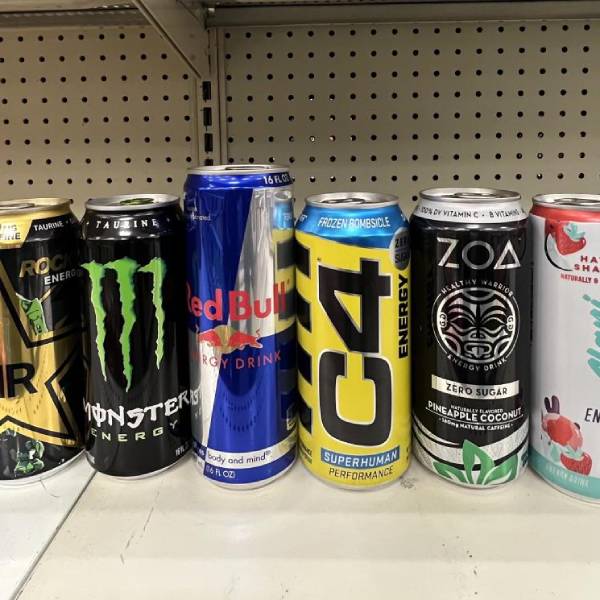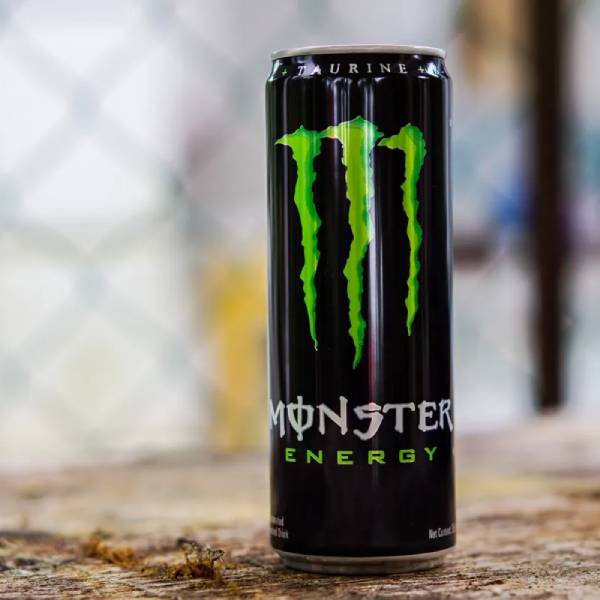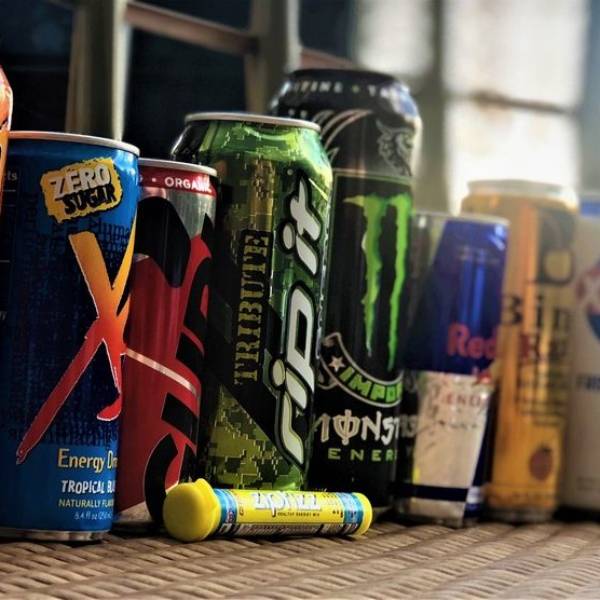Identifying the Worst Energy Drinks
Too much sugar and high caffeine can make energy drinks dangerous. Manufacturers often add massive amounts of sugar for flavor and quick energy. This sugary boost crashes quickly, leaving you feeling more tired. Long-term sugar consumption can lead to weight gain and diabetes. High caffeine levels can cause heart palpitations and anxiety. Over time, caffeine addiction may develop, making you consume even more. Moreover, mixing these drinks with alcohol worsens dehydration and impairs judgment.

Harmful Additives and Their Effects
Artificial additives in energy drinks bring hidden risks. Colorings and preservatives can cause allergic reactions or hyperactivity, especially in children. These chemicals add no nutritional value but pose various health risks. For example, some artificial colorings link to cancer and other severe conditions. Stimulants like guarana or taurine claim to boost energy, yet their long-term effects are unclear. Combining multiple stimulants increases heart strain, especially when taken in large amounts. This combination creates a toxic cocktail putting health at risk.
Making Informed Choices
Understanding which energy drinks to avoid helps you stay healthy. Check ingredient lists for excessive sugar, high caffeine, and artificial additives before buying. Opt for drinks with naturally sourced ingredients for a safer choice. Herbal teas or water with electrolytes can provide a healthier energy boost. Educate yourself and others about the dangers of bad energy drinks to make better decisions. Taking these steps protects your long-term health and well-being. Finally, always consult a healthcare professional if you consume energy drinks regularly.
Health Risks of the Worst Energy Drinks
Excess sugar in energy drinks poses severe health risks. High sugar levels contribute significantly to weight gain and obesity. Consuming these drinks regularly can also elevate your risk of developing type 2 diabetes. Tooth decay becomes another concern as sugar fosters bacterial growth. An average can of the worst energy drinks can contain up to 54 grams of sugar. This amount far exceeds the daily recommended sugar limits, straining your body’s ability to regulate insulin and maintain healthy blood sugar levels. With sugar content this high, the health implications become even more alarming.
Caffeine and Cardiovascular Strain
The dangerous amounts of caffeine in the worst energy drinks can severely impact your cardiovascular health. High caffeine content increases heart rates dramatically, causing palpitations. This also elevates the risk of developing hypertension over time. When combined with other stimulants like taurine and guarana, the effects become more potent. These additive stimulants create a harmful cocktail, pushing the cardiovascular system to its limits. Continuous consumption of such drinks may even result in heart-related issues. People with pre-existing heart conditions are particularly at risk, and they should avoid these beverages altogether.
Risks from Artificial Additives
Artificial additives present in the worst energy drinks can lead to numerous health problems. Many of these drinks contain preservatives that can exacerbate allergies. Such additives can also cause digestive issues like bloating and cramps. These synthetic substances often disrupt the body’s natural metabolic processes. Recognizing these risks becomes essential to protect your long-term health. Ensuring you consume healthier alternatives will minimize exposure to these harmful chemicals. Reading labels and understanding ingredients can help you make more informed choices, safeguarding your well-being.
Recognizing the risks associated with the worst energy drinks is vital for maintaining good health. High sugar and caffeine levels, combined with artificial additives, create a dangerous mixture. Making an effort to avoid these beverages can significantly benefit your body’s overall health. Look for healthier alternatives to protect your cardiovascular system and improve your quality of life.

Psychological Effects of the Worst Energy Drinks
Beyond physical health, the “worst energy drinks” can significantly impact mental well-being. The high caffeine levels cause jitters and anxiety, which disrupt sleep patterns. Poor sleep quality affects cognitive function and leads to decreased productivity. People find it difficult to focus or make sound decisions. The more they consume energy drinks, the less their brains can operate optimally. This creates a cycle of dependency, where people rely on stimulants for everyday tasks. Breaking this cycle requires awareness and proactive steps to limit energy drink consumption.
Emotional Instability and Mood Swings
Energy drinks contribute to emotional instability through their sugar content. An initial sugar high is often followed by a crash, creating an unstable emotional state. This results in mood swings and irritability, which can strain personal and professional relationships. People become more reactive and less emotionally resilient. This instability can also lead to symptoms of depression and anxiety over time. Consistently fluctuating blood sugar levels make it hard to maintain emotional balance. Educating oneself about these effects can encourage more stable and healthy lifestyle choices.
Long-Term Dependency and Lifestyle Choices
Long-term use of harmful energy drinks increases dependency on stimulants. This makes it challenging to maintain natural energy levels throughout the day. People find themselves needing a constant caffeine and sugar fix to feel normal. This dependency can lead to more severe health issues like insomnia and chronic anxiety. Making informed decisions about energy drink consumption can mitigate these risks. Awareness of these effects helps in choosing healthier alternatives. Staying mindful of caffeine and sugar intake can improve overall well-being and quality of life.
Popular Brands Among the Worst Energy Drinks
Certain popular brands are consistently identified among the “worst energy drinks” due to their ingredients. Monster Energy, Red Bull, and Rockstar are frequently criticized for high sugar and caffeine content. While these brands dominate the market, they often prioritize immediate energy boosts over long-term health.
These drinks may provide a temporary surge in energy but come with a significant cost to health. Examining ingredient labels and understanding the long-term consequences can lead to more informed consumer decisions. Avoiding these notorious brands helps in minimizing health risks. Examining labels of 7 Brew Energy Drinks helps you understand their long-term health consequences. Avoiding these notorious brands can minimize health risks significantly.
Healthier Alternatives to the Worst Energy Drinks
Instead of consuming the “worst energy drinks,” consider healthier alternatives. Green tea and matcha provide a natural energy boost with antioxidants and moderate caffeine levels. These beverages offer sustained energy without the harmful side effects of sugary energy drinks.
Another option is to prepare homemade energy drinks with natural ingredients. Smoothies with spinach, almond milk, and berries can provide vitamins and minerals crucial for energy production. Remaining hydrated with water and electrolyte-infused beverages also prevents fatigue without adverse effects. Choosing healthier options protects your physical and mental well-being. Consider making homemade energy drinks with natural ingredients for a healthier boost. Staying hydrated and choosing smoothies can improve energy levels without the risks of commercial energy drinks.

Making Informed Choices and Understanding the Worst Energy Drinks
Making informed choices means understanding why certain beverages are considered the “worst energy drinks.” Educating yourself about ingredient labels, recommended daily sugar and caffeine intake, and potential side effects is essential. Avoid gimmicky marketing claims that prioritize taste and immediate boosts over health.
Consult healthcare professionals if in doubt, especially if you have existing health conditions affected by caffeine or sugar. Developing better habits and steering clear of the worst energy drinks improves both immediate energy levels and long-term health. Knowledge empowers you to replace harmful habits with beneficial ones. Consult healthcare professionals to understand the worst energy drinks for you. Developing better habits helps replace harmful consumption with healthier choices.
In conclusion, understanding and avoiding the “worst energy drinks” is crucial for maintaining overall health and well-being. These drinks, laden with sugar, high caffeine, and artificial additives, pose significant physical and mental health risks. Popular brands often prioritize immediate boosts over long-term health, making it essential for consumers to make informed decisions. Opting for healthier alternatives such as green tea, matcha, and homemade energy drinks offers a safer means of maintaining energy levels. By being aware of harmful ingredients and making better lifestyle choices, we can protect our health and enjoy sustained energy and well-being.